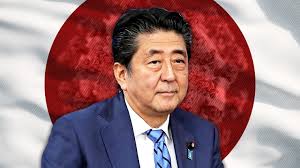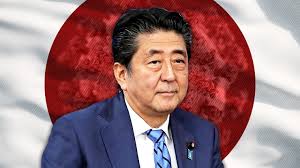
Japanese Prime Minister Shinzo Abe declared a declared a state of emergency in Tokyo and its surrounding regions over the growing threat of the coronavirus pandemic and warned that capacity fulfillment was being reached by hospitals in the country. He also added that the government was also planning to make use of the unused Olympic facilities for housing the patients that have been rendered mildly by the covid-19 – the disease that is caused by the coronavirus pandemic.
The a one month emergency period was declared by Abe starting from April 7 for the areas Osaka, Kanagawa, Saitama, Chiba, Hyogo and Fukuoka prefectures as well as the capital and commented that this was the greatest crisis that was faced by the country since the Second World War.
The announcement mean that the local governments will now have all powers to try and prevent the spread of the coronavirus pandemic and will including trying to ensure that people remained indoors most of the time.
“People need to change their behavior,” Abe told a news conference. He warned that the number of Covid-19 infections – the name of the disease caused by the novel coronavirus, in the country could reach 10,000 in two weeks and 80,000 in a month if there was not intervention to try an break the chain of infection.,
He also informed that while the government has already made arrangement for thousands of the mildly infected patients to be isolated and quarantined in hotel rooms in Tokyo and Osaka, about 800 patients could be house in the facilities meant for the now-delayed Tokyo Olympics that have now been re-purposed.
If the interventions could result in people managing to reduce contact by at least 70% or 80%, the infections will peak out in about two weeks according to calculations made by experts, Abe said. Concerns in Japan about a potential crisis situation because of the coronavirus pandemic, similar to what is being witnessed in the United States and in a number of countries in Europe, because of a recent spike in infections which reached a total of about 4,000 from less than 400 just a month ago.
Abe said that during the national emergency period, there will be normal operations of all essential public services. However the government wants that the number of people going to work in the cities should get reduced by at least 70 per cent during the emergency period, he said. He also urged residents refrain from going to bars and nightclubs but also added that the measures being taken in Japan were not as severe as the ones that have been taken by countries like Spain and Italy in Europe.
The region that would come under the national emergency accounts for about 50 per cent of the total economy of Japan which has also raised concerns that the emergency will reduce the output of the country by about 20 per cent for the current quarter.
According to some analysts, this measure by Abe, which is being described as a form of a “soft-lockdown,” could push the Japanese economy into contraction which will be more worse than what the country had experienced during the 2008 global financial crisis.
(Source:www.bloomberg.com)
The a one month emergency period was declared by Abe starting from April 7 for the areas Osaka, Kanagawa, Saitama, Chiba, Hyogo and Fukuoka prefectures as well as the capital and commented that this was the greatest crisis that was faced by the country since the Second World War.
The announcement mean that the local governments will now have all powers to try and prevent the spread of the coronavirus pandemic and will including trying to ensure that people remained indoors most of the time.
“People need to change their behavior,” Abe told a news conference. He warned that the number of Covid-19 infections – the name of the disease caused by the novel coronavirus, in the country could reach 10,000 in two weeks and 80,000 in a month if there was not intervention to try an break the chain of infection.,
He also informed that while the government has already made arrangement for thousands of the mildly infected patients to be isolated and quarantined in hotel rooms in Tokyo and Osaka, about 800 patients could be house in the facilities meant for the now-delayed Tokyo Olympics that have now been re-purposed.
If the interventions could result in people managing to reduce contact by at least 70% or 80%, the infections will peak out in about two weeks according to calculations made by experts, Abe said. Concerns in Japan about a potential crisis situation because of the coronavirus pandemic, similar to what is being witnessed in the United States and in a number of countries in Europe, because of a recent spike in infections which reached a total of about 4,000 from less than 400 just a month ago.
Abe said that during the national emergency period, there will be normal operations of all essential public services. However the government wants that the number of people going to work in the cities should get reduced by at least 70 per cent during the emergency period, he said. He also urged residents refrain from going to bars and nightclubs but also added that the measures being taken in Japan were not as severe as the ones that have been taken by countries like Spain and Italy in Europe.
The region that would come under the national emergency accounts for about 50 per cent of the total economy of Japan which has also raised concerns that the emergency will reduce the output of the country by about 20 per cent for the current quarter.
According to some analysts, this measure by Abe, which is being described as a form of a “soft-lockdown,” could push the Japanese economy into contraction which will be more worse than what the country had experienced during the 2008 global financial crisis.
(Source:www.bloomberg.com)














